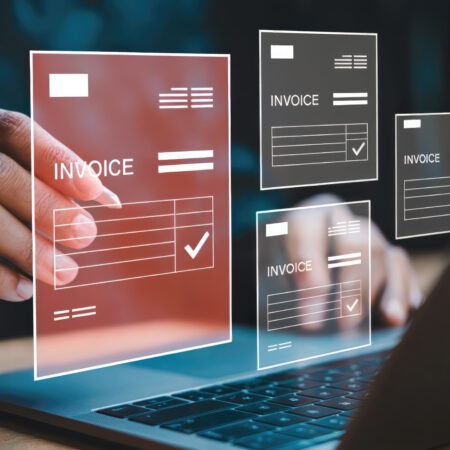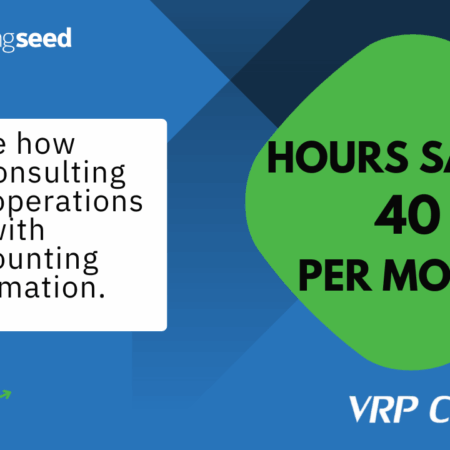
The COVID-19 pandemic has been a major disruption and revelation to all kinds of business. As we enter 2021, we do so with a new risk environment, coupled by economic uncertainty. How do you navigate these uncertainties and drive the success of your organization? Your accounting gives you a great place to start. Let’s look at how you can find risk management solutions through in-depth accounting.
Newsletter sign up
"*" indicates required fields

How Are Accounting and Risk Management Connected?
Risk management is the identification, monitoring, and control or resolution of risks to successful business operations, or goals. Every organization will face issues that, if left unchecked, could harm the organization. There are large-scale risks like IT security and more individualistic risks such as over-reliance on a specific vendor. They all boil down to financial costs. How much money can these risks cost you?
Accounting helps you identify these risks by visualizing how different events, products, and other resources affect your financial health. These numbers also give you concrete data you can use. Financial analysis unveils risk management solutions in that you can identify risks faster and navigate around them. This also opens better opportunities.
Risk Management Accounting Factors
Accounting data from a variety of different sources can be stored, tracked, and monitored within a single intuitive accounting system. Through the lens of accounting, you can isolate what initiatives, products, events, and people are contributing to lower return on investment. From here, it’s easier to apply corrective actions because you’re not guessing at what’s going on. Financial amounts and trends surrounding your initiatives provide concrete details into what’s working and what isn’t.
No matter the industry or size of the company common risk factors include:
- Financial risks
Financial instability from failed projects, increasing expenses, and poor cash flow are just a few examples. - Human factors
Poor decision making, errors, and employee loss or staffing issues are examples of how human factors can drive costs threatening your operation. - Environment
Environmental changes and physical events like hurricanes and floods can drive up costs in damages and time, especially if unprepared. Reduced business and cloud-based risks are also factors. - Equipment/product issues
Product delays or errors, failing equipment, and lack of supplies are examples of risks that might inhibit work while increasing costs.
Risks are manageable because they can be identified for your unique organization. Using accounting tech like Accounting Seed, you can define these unique risks and monitor them through automated reporting and alerts. Let’s look at how financial reporting tools are your ultimate risk management solutions.
The Power of Comprehensive and Custom Reporting
Running financial and managerial reports is the best way to measure time, money, and effectiveness throughout your business. The return on investment information is clear for you to see and compare.
The way your data is compiled and presented is crucial to pinpointing and managing your risks. With custom financial reporting, you can configure calculations and formatting to target specific data. This also helps maintain accuracy and helps you compare your business financials more effectively, particularly for financial reports like:
- Comparative of budget to actual
- Year-to-date reporting
- Comparative of budget to budget
- Report on relative accounting periods
- Comparative of actual to actual
These reports are great for identifying clear answers to how your activities are impacting your finances over defined periods of time. If issues have caused significant fluctuations, these can indicate areas of risk for which you can address. Some additional financial reports you need are:
- Profit and Loss
- Profit and Loss Versus Budget
- Balance Sheet
- Trial Balance
- Cash Flow Statement
- Ledger Inquiry
All these reports are valuable because they can be tailored to answer broad or specific questions. In risk management, this is where you can pinpoint issues affecting your finances and monitor areas of concern.
Examples
*Profit and loss reports determine if certain expenses actually bring a return on investment or if they’re just contributing to revenue drain. If the expense is too great for the undertaking to be valuable or effective, this indicates a risk to your operation.
*Cash flow statements let you see how efficient money is being handled throughout the company. Issues with cash flow can be directly linked to how you are handling significant risks from staffing to procedural problems.
*Wondering how your business is doing compared to last year to see if what you’re doing is working? Run a year-to-date report. This gives you a 360-degree view of your company’s overall performance to identify setbacks, recurring problems, and things that went totally wrong. Use this data to construct stronger business plans to avoid risks and issues in the future.
Control Your Risks with Accounting Seed!
Accounting Seed’s ultra-flexible financial statements and management reporting with drag-and-drop configurations and built-in graphics lets our users dive deeper. Compare operational statistics with financial metrics, or financial data with sales numbers. Use unlimited options to harness your data and take actionable steps in controlling risks.
When new questions arise, it’s easy to click your way to a new custom report, dashboard, or visualization. Get fast answers and make confident decisions with assets, liabilities, customers, orders, and projects to eliminate risks and empower your business. Our automated accounting solutions allow you to schedule reports at any time to streamline operations and stay ahead of any potential challenges.
Schedule a free demo today to explore how Accounting Seed helps you manage finances your way.
See Accounting Seed in action
See how accounting on Salesforce can eliminate the need for costly integrations—and silos of mismatched information—by sharing the same database as your CRM.



